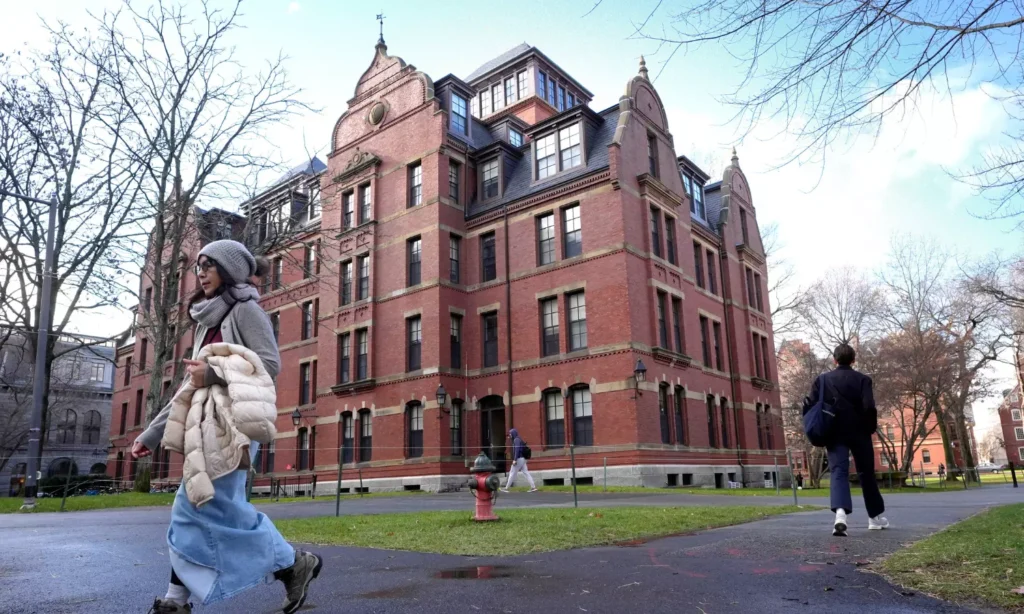
Beyond Harvard: How Conservative Movements Are Quietly Reshaping Higher Education Across the U.S.
While the high-profile standoff between the Trump administration and Harvard University has dominated headlines, similar conservative-led reforms are unfolding in colleges and universities across the United States—often with less national attention but equally transformative consequences.
For Ken Beckley, an Indiana University alumnus, the debate is personal. Though he’s never studied at Harvard, he now wears a crimson Harvard cap in solidarity. To him, the political targeting of Harvard feels eerily similar to what happened at his own alma mater, where Indiana’s Republican Governor Mike Braun recently removed three alumni-elected members from the university’s Board of Trustees and replaced them with his own appointees—an action Beckley fought hard but unsuccessfully to prevent.
But Indiana is not alone. From Florida to Idaho, a wave of conservative state officials are taking steps to reshape how public—and in some cases, private—universities operate. Their efforts have moved well beyond culture wars around critical race theory (CRT) and diversity, equity, and inclusion (DEI). Now, they’re targeting how universities govern themselves, hire faculty, and determine what belongs in the classroom.
What’s Driving the Conservative Push?
At the heart of these initiatives is the belief that higher education has grown out of touch with American values, leaning too far left ideologically while burdening students with debt. Critics argue that DEI programs and CRT teachings politicize education and alienate conservative voices.
In states like Florida, Ohio, Texas, Iowa, and Indiana, elected officials are introducing or passing laws to reshape university boards, control who gets hired as presidents, and diminish the role of faculty in setting academic policies.
“They’ve realized they can advance their political priorities through state university systems,” said Preston Cooper, a higher education policy expert at the conservative American Enterprise Institute.
This ideological shift is perhaps most starkly visible in Florida, where Governor Ron DeSantis has replaced the leadership at New College of Florida, a traditionally liberal arts institution, with conservatives. As a result, many faculty members have resigned, including Amy Reid, whose gender studies program was defunded and then eliminated. Reid now works with PEN America, supporting academic freedom efforts.
“Our students warned, ‘Your campus is next,’” she recalled, suggesting the changes in Florida are just the beginning of broader nationwide reforms.
Controversy Grows Around DEI and Academic Freedom
Some reforms are already in motion. In Iowa, new DEI restrictions take effect this July, with more expected. The state’s Board of Regents is now considering further limitations similar to Idaho’s ban on mandatory DEI-related coursework.
In Ohio, a recently passed law not only bans DEI initiatives at public colleges but also strips faculty of some collective bargaining rights and weakens tenure protections. This marks a significant shift in the relationship between educators and administrators.
“Trustees used to focus on tuition and academic programming. Now there’s a push to reduce faculty autonomy,” said Joseph Yockey, a law professor and former Faculty Senate president at the University of Iowa.
But while Harvard’s battle with the Trump administration—marked by a freeze on billions in federal funding—has sparked national outcry, many of the quieter state-level shifts are advancing with minimal opposition. This has raised concerns among academic freedom advocates.
“There are few checks on what a politically motivated board can do,” said Isabel McMullen, a Ph.D. candidate at the University of Wisconsin studying university governance. “Unless faculty and students organize, there’s little stopping sweeping changes.”
From Campuses to Congress: Growing National Attention
The cumulative effect of these reforms, both state and federal, is an increasing erosion of academic independence. According to Isaac Kamola, Director of the Center for the Defense of Academic Freedom at the American Association of University Professors, universities now find themselves under political pressure from all sides.
In Texas, Governor Greg Abbott recently signed laws restricting student protests and giving state-appointed university boards greater authority over curriculum and degree offerings.
Cameron Samuels, a 21-year-old Texas activist, believes such control over campus ideas and expression threatens democracy itself.
“When politicians control what can and cannot be taught, it’s dangerous for the future of free thought,” said Samuels, who identifies as transgender and nonbinary. Initially accepted to Harvard for graduate studies, Samuels instead chose the University of Texas at Austin to remain grounded in a political environment they better understood.
These unfolding changes reflect a powerful shift in the landscape of higher education—one that goes far beyond the Ivy League and is quietly redefining what students learn, how universities are run, and who holds the power to shape academic life in America.
Also Read: India Launches SOAR Programme to Teach AI Skills to School Students and Teachers